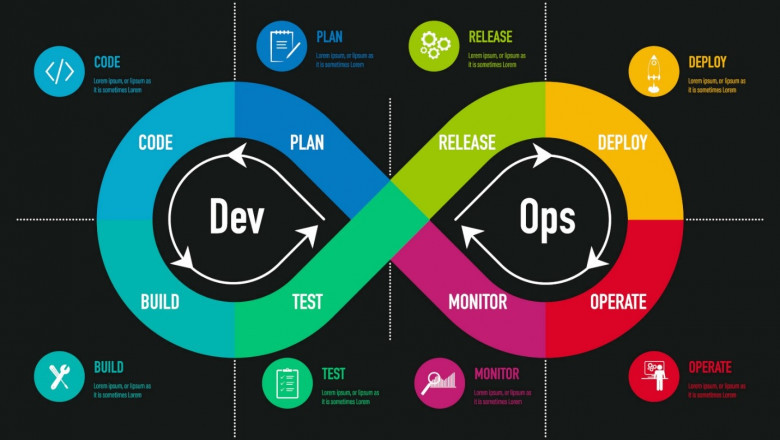views
In the current time, the world of technology is developing, and organizations are always looking for ways that smooth the software development. Well, Platform Engineering is one of the powerful approaches that is built upon the DevOps principles. This can help solve the growing complexity of modern application development.
In this article, we are going to discuss in detail the benefits of using platform engineering in DevOps. To understand this, you may need to understand DevOps first, where you will learn the basic concepts of DevOps. In the training, you will learn the basics of DevOps in detail. So, let’s begin to understand the benefits of Platform Engineering in DevOps.
Benefits of the Platform Engineering:
Here we have discussed the benefits of platform engineering in detail. So, if you are thinking of implementing these benefits into practice, then apply to the DevOps Course in Delhi. This in-class training will allow you to learn from the experts:
1. Increased Efficiency and Agility
Platform engineering speeds up software development by using automated workflows and pre-built tools. This helps teams develop, test, and launch new features more quickly and often. It also allows them to respond faster to customer needs or market changes, reducing the time it takes to bring a product to market. With a strong platform in place, development becomes smoother and more predictable. Plus, if something goes wrong, platform engineers can quickly fix it, making sure releases happen on time without delays.
2. Consistency and Standardization
A major benefit of platform engineering is that it brings a consistent way of building and running applications across different teams. Instead of everyone using their own tools or processes, the platform provides a shared system. This reduces errors, avoids conflicts, and makes it easier for people to work together. Developers can jump between projects or teams without needing to learn a new setup every time.
3. Improved Scalability
As your product grows and more people start using it, the platform can handle the extra load without needing major changes. It’s designed to scale—whether that means handling more users, more data, or more features. This means you don’t have to stop and rebuild your systems every time you grow. It also supports adding new tools or meeting new regulations without slowing things down. To learn more about it, join the DevOps Training in India.
4. Enhanced Developer Experience
A good platform removes unnecessary complexity. Developers can focus on creating good code without worrying about complicated background systems. They don't need to think about servers, how to release their work, or the technical equipment needed. This makes their job simpler, more fun, and helps them get more done. When developers have all the tools they need, they're usually happier at work. This helps companies keep good workers and attract new, talented people.
5. Higher Reliability
Platform engineering often includes built-in tools for monitoring systems and sending alerts when something goes wrong. Platform Engineering helps keep everything running well. If something goes wrong, teams find out quickly and can fix problems before they cause big issues. This means the system stays up and running more often, and users face fewer interruptions when using the software.
6. Better Security
With Platform Engineering, security is better, too. Since everything is managed from one place, it's easier to put strong safety rules in place. These rules can be kept up-to-date without much effort. You don’t have to rely on individual teams remembering to secure things—platform tools handle it automatically.
7. Cost Savings
By managing infrastructure more efficiently, platform engineering helps avoid wasting resources. Teams don’t need to build their own tools from scratch, and they don’t accidentally overuse cloud services. This leads to better budget control and lower operating costs.
8. Easier Compliance
With standardized processes and built-in checks, platforms make it easier to follow rules and pass audits. Everything is logged, traceable, and consistent, which makes regulators happy and protects your business.
Apart from this, if you have learned the DevOps Masters Program, then this will allow you to learn the advanced concepts, which can help you grow further in the business. Also, this may add credibility to your portfolio.
Conclusion:
From the above discussion, it can be said that Platform engineering provides a strong foundation for developers by creating a clear set of standards and rules to follow. This framework helps teams work more efficiently and safely by setting up guidelines for how software should be built and managed.














Comments
0 comment